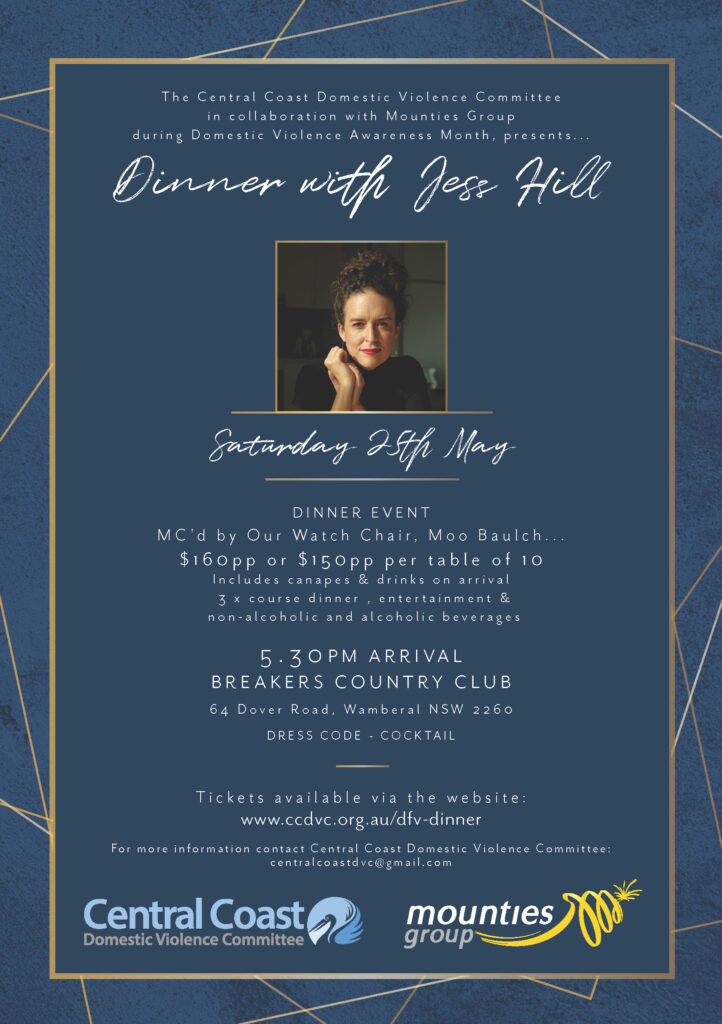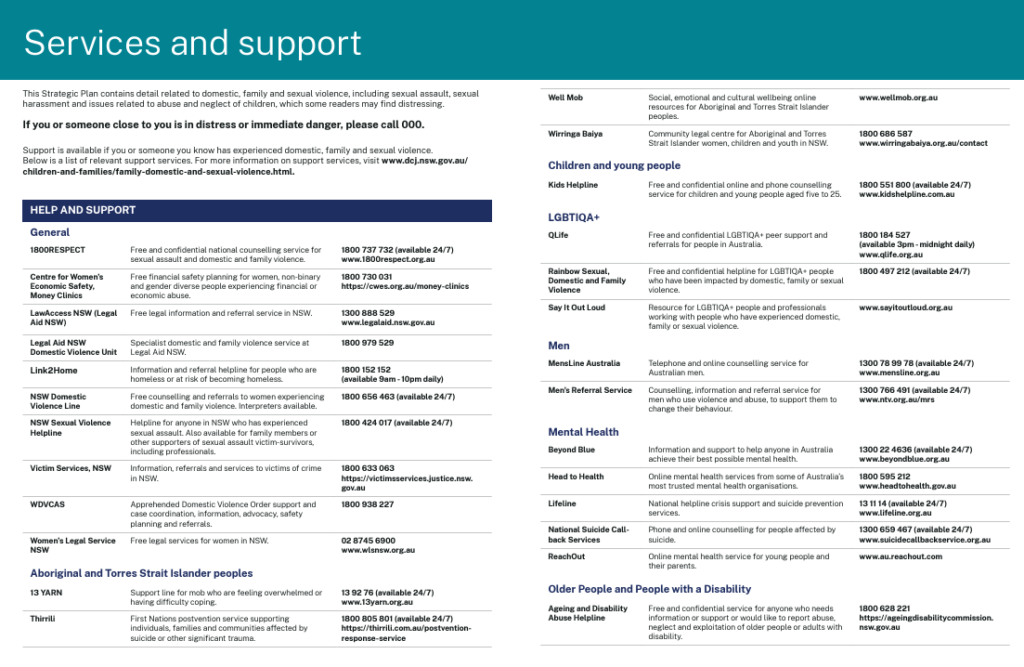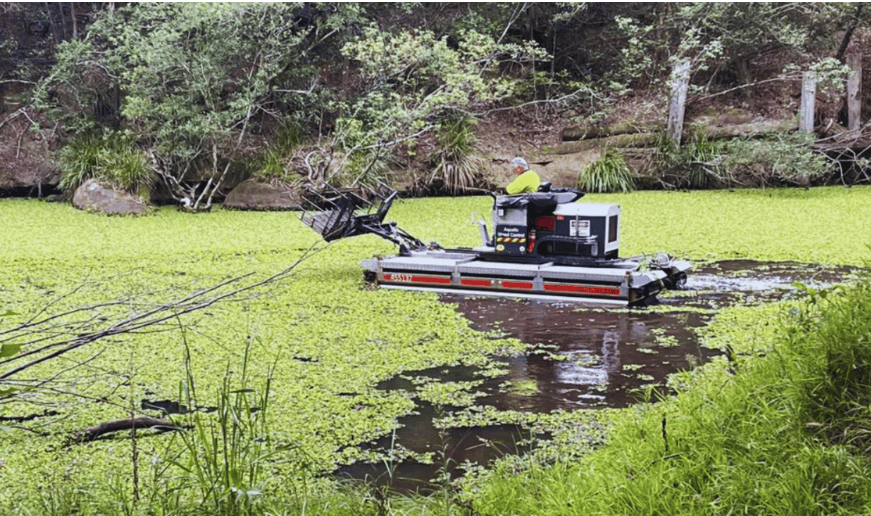According to Australian Femicide Watch and the Counting Dead Women project, 19 women have been killed in Australia already this year and, as is usually the case, most of these women have allegedly been killed by someone they know.

By Sharon Walsh*
Last week, the Central Coast Domestic Violence Committee (CCDVC) was invited to the launch of NSW Women’s Safety Commissioner Strategic Plan 2024-2027. The CCDVC welcomes this plan and the opportunities it offers for the CCDVC to continue to expand on our collaborations with the Central Coast community to work together to bring an end to Domestic and Family Violence (DFV) and Sexual Violence here on the Central Coast.
Sadly, the Central Coast continues to have the second highest number of reported cases of Domestic and Family Violence in NSW and these numbers only reflect reported cases. We know that, as a crime, DFV is notoriously underreported.
Last weekend the Elsie’s Conference was held in Sydney at UTS to celebrate the 50-year anniversary of the establishment of the very first dedicated domestic violence refuge.
Elsie’s was established by a group of Sydney feminist women who broke into two adjoining vacant and abandoned houses in Glebe and, in doing so, began the movement that would finally put the issue of men’s violence against women on the political map and require governments to begin developing official policy responses to violence against women and children.
Fifty years on, we have had a series of national and state-based plans to address DFV, including the launch of the Albanese Government’s 10-year plan. This plan followed the previous government’s widely criticised 10-year plan which arguably failed. DFV rates remained stable over the life of that plan and rates of sexual violence against women increased.
The Albanese government’s 10-year plan has promised to end violence against women “within a generation”.
Since the establishment of Elsie’s in NSW, many in the DFV sector consider many government based “reforms” to have aimed at destabilising the DFV sector’s feminist underpinnings.
Competitive tendering for funding opportunities is an example of this undermining. We see services, who exist to provide protection for women and children, being required to fight for funding and survival to continue their crucial work.
Fifty years on, though, the DFV sector has developed significantly in how it understands and responds to the complexities of DFV.
Recognising the importance of listening to victim survivors, those with lived experience, the resilience of victim survivors and the workers in the DFV sector, our understanding of coercive control and how it manifests, the importance of primary prevention, technology facilitated abuse, intersectionality and women’s economic safety, the DFV sector has evolved tremendously. We’re a savvy and committed lot.
But still, at least one woman a week loses her life as a result of violence against women and this ongoing tragedy reminds us of how much work is still to be done.
New plan for women’s safety
The NSW Women’s Safety Commissioner’s inaugural strategic plan emphasises the importance of the kind of work the CCDVC undertakes, implementing local campaigns and collaborations to work together as a community to bring an end to DFV and Sexual Violence on the Central Coast.
According to the strategic plan, domestic, family and sexual violence (DFSV) is widespread and causes grave harm, particularly to women and children.
“It traumatises individuals, destroys families and undermines our ability to achieve equality in the community.
“It can be experienced by anyone, regardless of their background. It affects all groups, demographics, identities and communities.
“While both men and women can use and experience DFSV, overwhelmingly the majority of victim-survivors are women and children, and the majority of people who use violence are men. This is rooted in power imbalances between men and women and reinforced by rigid gender norms and stereotypes. At its core, such violence is both a symptom and a cause of gender inequality and a barrier to its achievement.
“Against this backdrop, in 2023 the NSW Government created a new role of Women’s Safety Commissioner to address the scourge of DFSV and enhance women’s safety in NSW.”
The Strategic Plan sets out actions aimed at achieving six overarching and interconnected priorities:
• Put people with lived experience at the centre
• Enhance oversight, monitoring and accountability for delivery of the NSW Plans
• Promote safe, accessible and integrated responses
• Champion a greater focus on primary prevention
• Strengthen workforces and informal support networks
• Support women’s economic safety and security.
The plan’s ultimate vision is that “all women in NSW enjoy safe homes and communities where they are respected and their children can thrive”.
It’s a comprehensive plan. Examples of key actions across those six priorities include:
- The creation of a lived experience advisory body for NSW, supported by a broader network of people with diverse lived experience across the state, will be a significant step forward and will complement existing groups in NSW. We will consult with experts and with government and non-government partners, including in other jurisdictions, to ensure that the establishment and operation of the new body follows best practice;
- Advocating for holistic, integrated and trauma-informed justice and community responses to DFSV that support accountability and behaviour change for men who use violence;
- Promoting initiatives to strengthen DFSV victim-survivors’ economic security and empowerment, both during and after abuse, including housing, employment and financial services; and
- Engaging with businesses and the corporate sector to strengthen their capacity to identify, prevent and respond to DFSV among employees and customers.
Dinner with Jess Hill
During Domestic Violence Awareness Month, on Saturday 25th of May, CCDVC has partnered with the Mounties Group to host a dinner with acclaimed journalist, author and activist, Jess Hill.

MC for the evening will be the equally formidable Chair of Our Watch, Moo Baulch.
The CCDVC invites the Central Coast community to join them for “Dinner with Jess Hill” and tickets are on sale now.
It warrants mentioning that the extensive work undertaken by the CCDVC, is in an unfunded and unpaid capacity. We stand on the shoulders of the amazing work of the women who have gone before us and who many of whom remain involved in the DFV sector, still passionate about contributing to a field committed to bringing an end to violence against women and children and sexual violence.
*Sharon Walsh is Vice President of the Central Coast Domestic Violence Committee. She has worked in child protection and gendered violence for 40 years. She has extensive front line, supervisory and educational practice experience in child protection, domestic violence, juvenile justice and the community section. As a long serving lecturer at the University of Newcastle she was instrumental in establishing curricula in gendered violence, child protection and juvenile/youth justice areas.
If you, or someone you know, requires assistance, here is a comprehensive guide from the NSW Women’s Safety Commissioner, to available services. If a life is in danger, please call 000.



